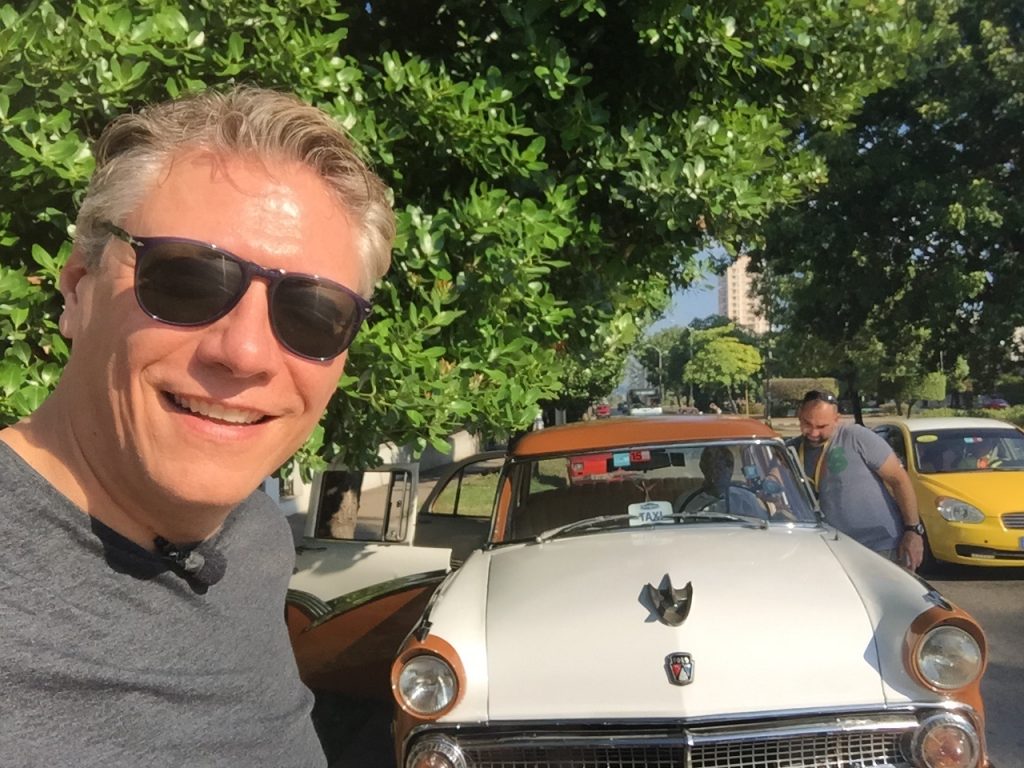WDIV-TV’s Devin Scillian On His Trip To Cuba
Scillian Talks about Cuban Cars, Music, and Culture

Devin Scillian, lead news anchor at Local 4, WDIV-TV, meets with Stephen Henderson on Detroit Today to talk about his trip to Cuba, a country that seems a world away, but is really just 90 miles away from Florida.
No Big Macs in Cuba: Scillian first remarks on how the absence of American trademarks in Cuba is a quick sign of the differences between Cuba and the rest of the Western world. He contrasts this initial impression with the abundance of cars in the country dating from the 1950s and 1960s which are representative of America’s past influence in the country.
Resonance with Detroit: Scillian connects this image of cars in Cuba with the spirit of Detroit, and remarks on how cars that were imported 50 years ago are still driven in Cuba today. Devin feels that it symbolizes the resilience and ingenuity of the Cuban population. He believes that Detroiters who travel to Cuba will sense a vitality similar to that of Detroit’s, citing similarities in architecture and the significance of music in Cuban culture.
Westernization in Cuba: Scillian says that Cuba has been open to many parts of the world and can even be described as a “North American Galapagos.” He says that Cuba’s leaders have built their form of government by picking and choosing various concepts from different world governments. He says past dictators have stayed in office so long by simply blaming outside forces, such as embargos.
What poverty looks like In Cuba: Sharing an experience in one of Havana’s barrios, Scillian felt as if he was walking through a third-world country, yet he questions whether the poverty he witnessed was really as destitute as it seemed. He notes that in Cuba there is little violent crime, great access to health care and one of the highest literacy rates in the world.
Revolution?: Scillian also shares that while he was there he felt he was witnessing the beginning of a new revolution in Cuba. He points to Cuba’s residents recently gaining access to WiFi, which allows many young Cubans to connect on websites like Facebook. He says that Cubans are exposed to things such as the Arab Spring and the movement in Ferguson for the first time, and he hopes that they will perhaps be inspired to unite in the same way.
To hear the entire conversation, please click the audio link above.
